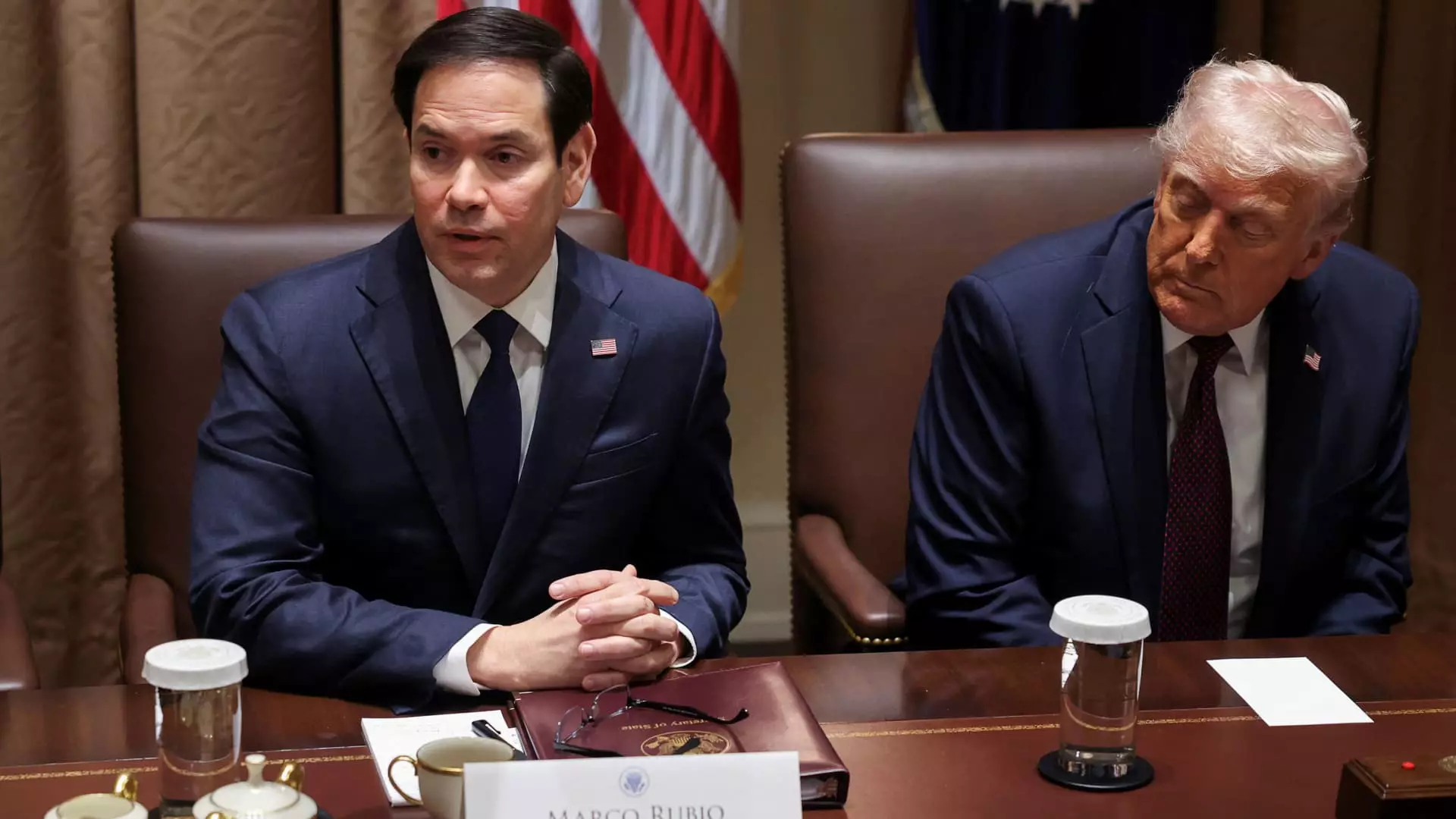The Trump administration is no stranger to controversy, but recent revelations about a draft executive order potentially signal a new low when it comes to U.S. diplomacy. A leaked 16-page document outlines an aggressive reorganization strategy that stands to dismantle crucial diplomatic functions aimed at promoting democracy, human rights, and multilateral cooperation. This so-called “disciplined reorganization” plan threatens to sever America’s ties with essential international frameworks and significantly weaken our diplomatic presence worldwide, particularly in regions already grappling with instability and poverty.
The proposal allegedly calls for the shuttering of U.S. embassies in Southern Africa and the elimination of entire bureaus focused on issues that, while often complex and unwieldy, are critical to fostering global stability. The overarching theme of this draft is aligned with the “America First” doctrine that has characterized Trump’s approach to foreign policy. However, this radical overhaul carries severe implications, regrettably reducing American influence on vital global issues in favor of a simplistic ideology that prioritizes domestic concerns above all else.
Dangerous Rollback of Human Rights Advocacy
One of the most worrisome aspects of this draft is its blatant disregard for human rights advocacy and climate issues. Offices dedicated to these fundamental causes, such as women’s rights and criminal justice reform, would be eliminated entirely. Frankly, it’s appalling to witness a U.S. administration embarking on such a regressive trajectory when the global fight for human and environmental rights is increasingly urgent. A retreat into insular policies under the guise of efficiency not only abdicates our moral leadership but also allows authoritarian figures worldwide to operate unchecked.
Historically, the U.S. has positioned itself as a beacon of hope for those advocating for human dignity and social justice. This proposal signals a betrayal of those principles. It sends a fatal message to marginalized groups and activists worldwide: that American diplomacy no longer prioritizes their struggles, but instead favors a narrow, superficial view of international relations that aligns with the administration’s specific political objectives.
Collapse of Multilateral Diplomacy
The draft signals an alarming shift toward unilateralism, reflecting a disdain for established international organizations like the United Nations. By planning closures and operational cuts in regional bureaus, the U.S. risks isolating itself from its allies and withdrawing from collaborative efforts necessary to tackle global issues such as climate change, pandemics, and transnational crime. In this era of interconnected crises, the repercussions of hollowing out our diplomatic corps could be catastrophic, undermining everything from trade agreements to crucial security partnerships.
Instead of projecting strength, this strategy appears to be driven more by a reactionary stance against globalism than a thoughtful approach to diplomacy. Consolidating embassies into four overarching regional groups may streamline operations superficially, but it does so at the cost of localized expertise and cultural understanding—two elements that are invaluable in effective diplomacy.
Chilling Effects on Future Diplomats
Another alarming facet of the proposed changes is the overhaul of hiring and training protocols within the State Department. The potential scrapping of the longstanding Foreign Service Officer Test in favor of a system that prioritizes “alignment with the president’s foreign policy vision” raises questions about impartiality and expertise. Such a move not only politicizes the selection of diplomats but risks cultivating a generation of leaders unfit for the complexities of international diplomacy, ultimately undermining the very fabric of the service.
The need for an apolitical and competent diplomatic corps has never been more pressing. In an age where misinformation and nationalistic fervor are on the rise, the U.S. should be actively cultivating skilled diplomats who can navigate these challenges thoughtfully and effectively—not paring down the very principles that enable them to succeed.
The draft executive order constitutes a seismic threat to America’s diplomatic landscape. By sacrificing human rights, international cooperation, and the integrity of U.S. diplomats for the sake of a vague efficiency, this administration risks accelerating a decline that could have lasting reverberations across the globe.

Leave a Reply